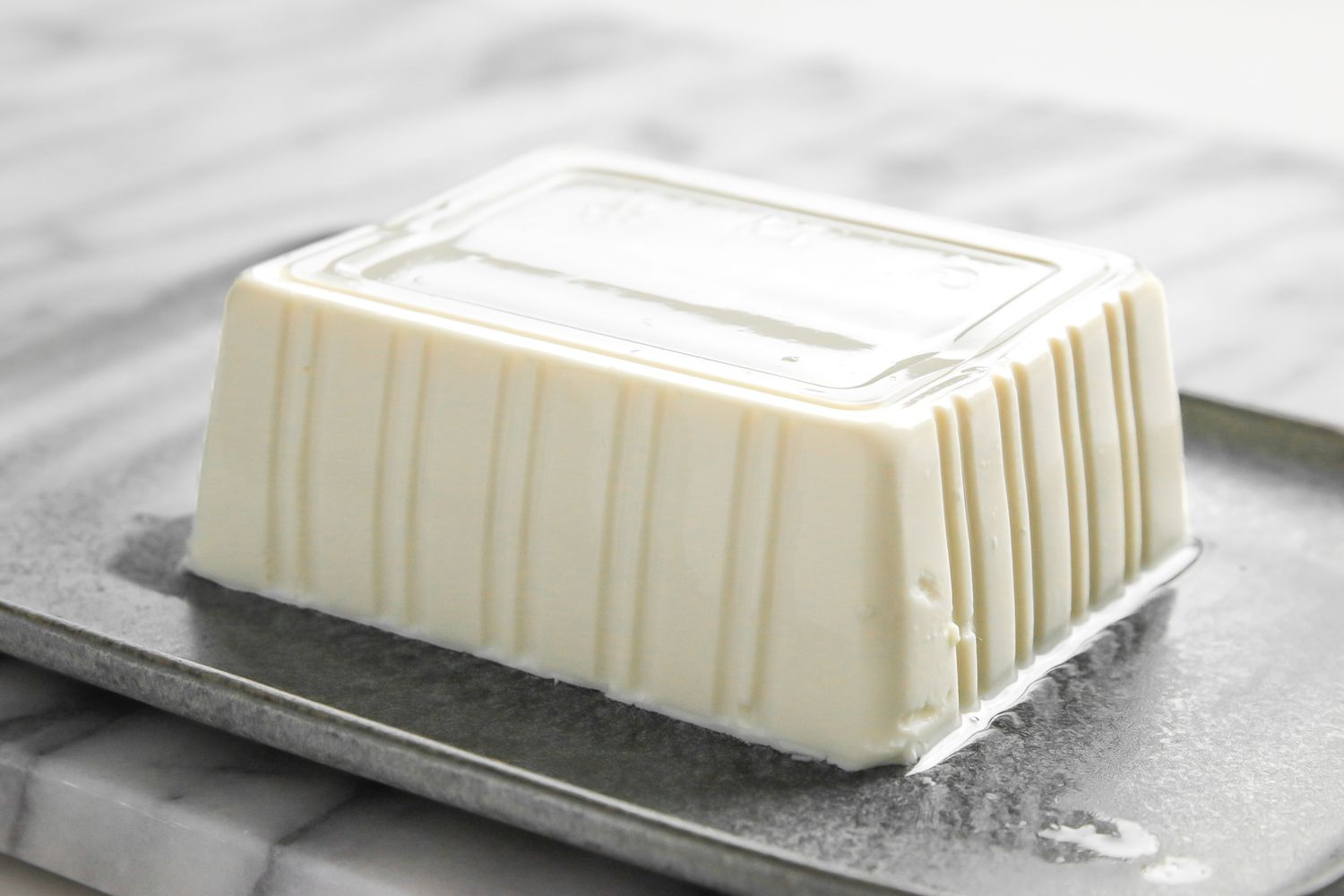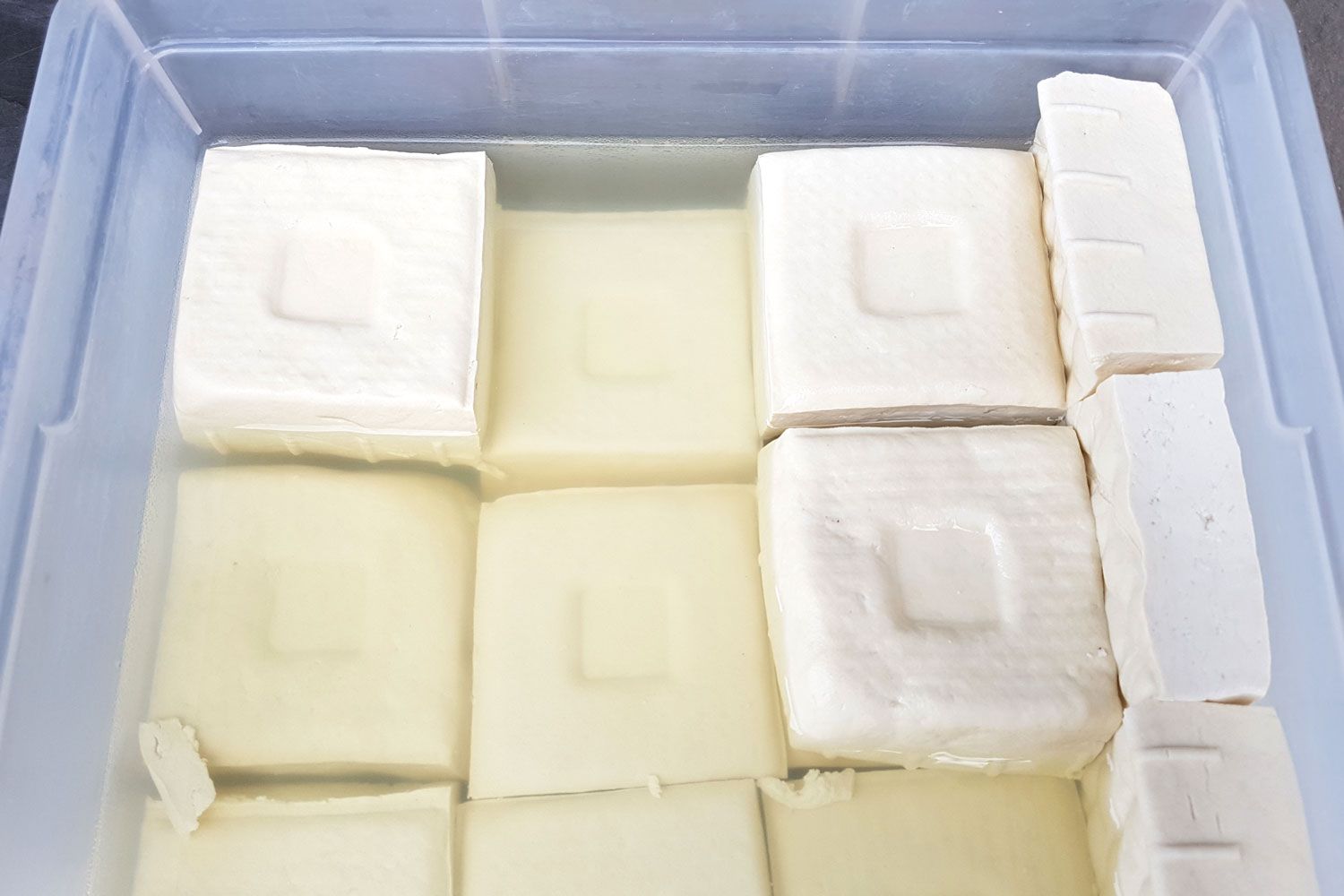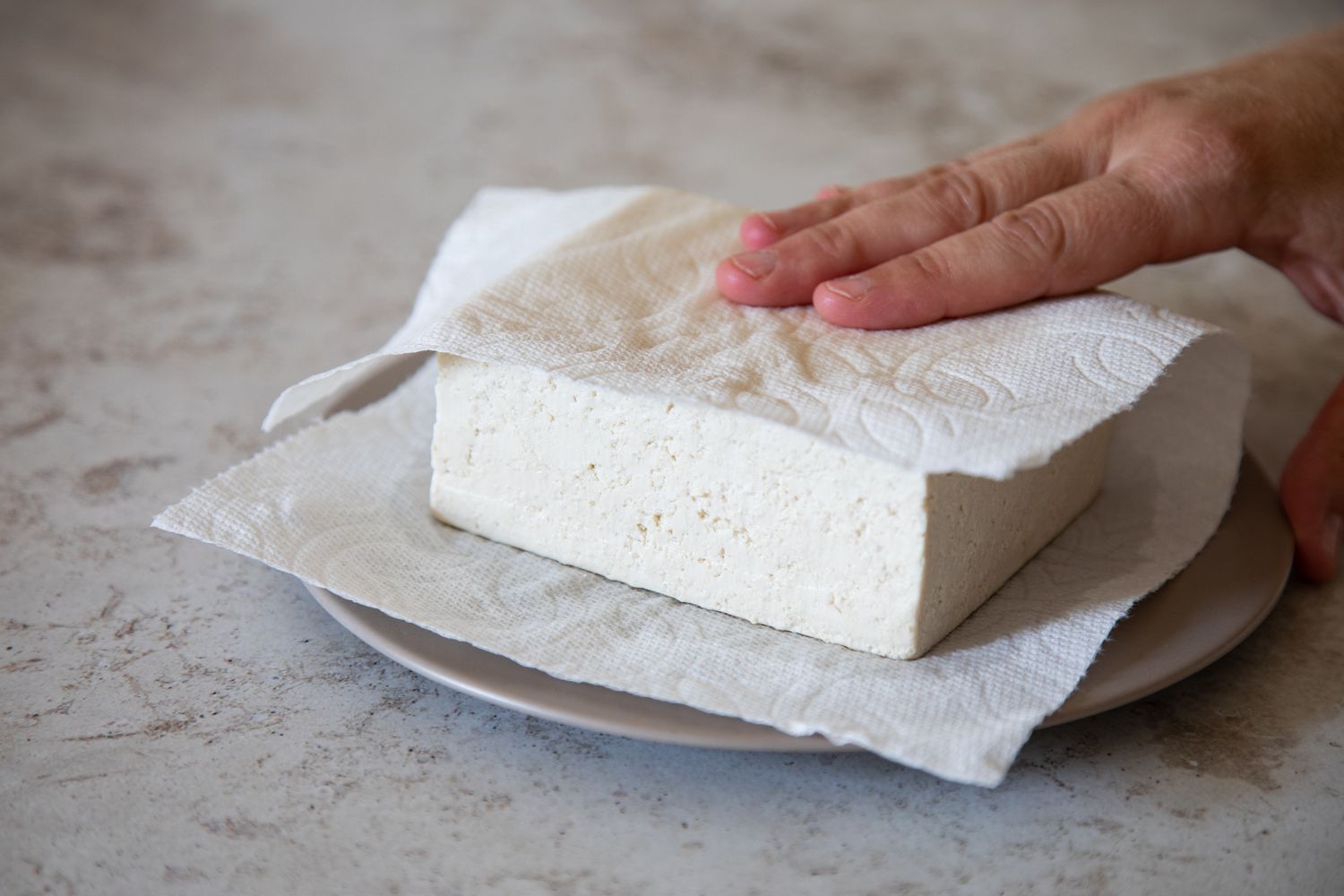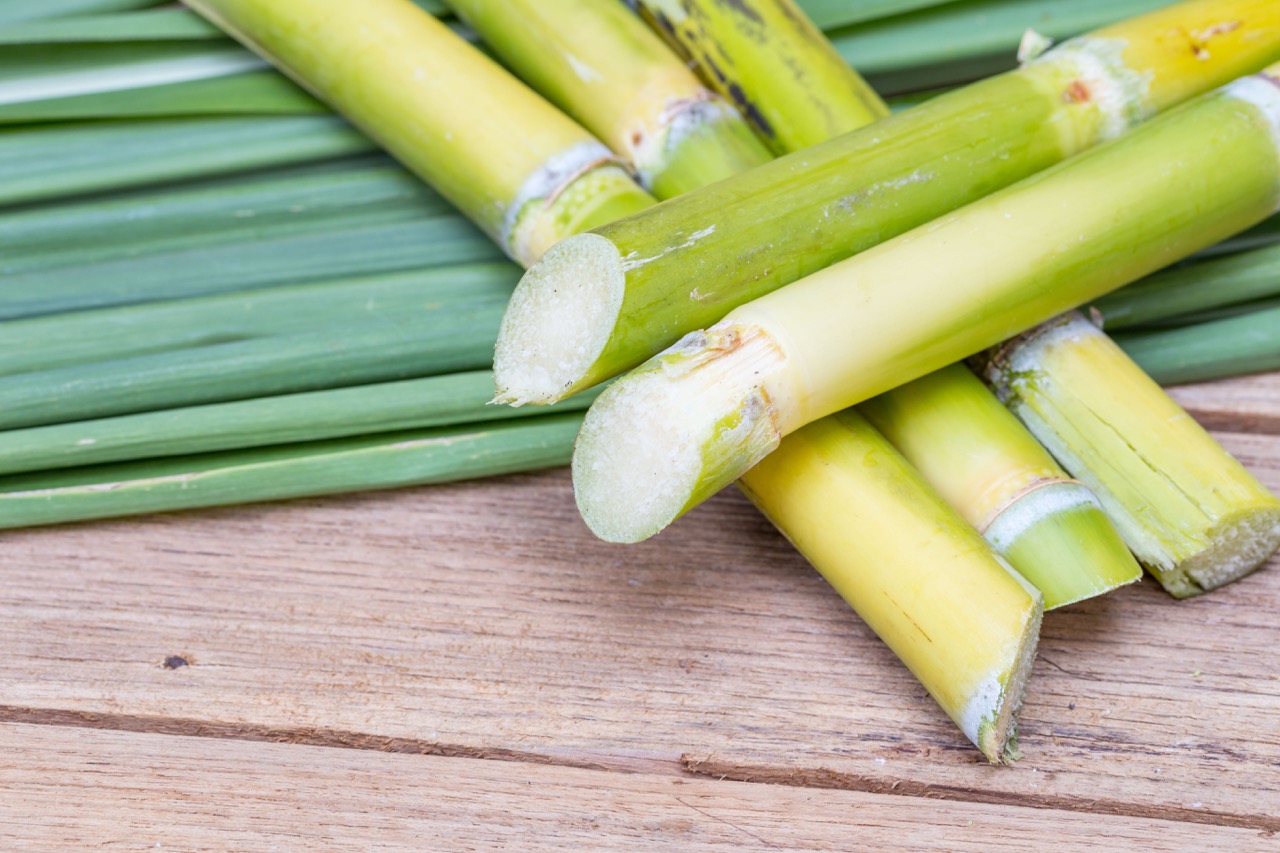

Articles
How To Store Raw Tofu
Modified: August 20, 2024
Learn the best methods to store raw tofu for optimal freshness and flavor. Explore helpful articles on tofu storage techniques to extend its shelf life.
(Many of the links in this article redirect to a specific reviewed product. Your purchase of these products through affiliate links helps to generate commission for Storables.com, at no extra cost. Learn more)
Introduction
Raw tofu is a versatile and nutritious ingredient that is commonly used in various cuisines around the world. It is a popular choice for vegans and vegetarians due to its high protein content and ability to absorb flavors. However, to fully enjoy the benefits and taste of raw tofu, proper storage is essential.
Storing raw tofu correctly helps maintain its freshness and texture, ensuring that it remains safe to consume and retains its nutritional value. Improper storage can lead to spoilage, off-flavors, and a loss of nutrients. In this article, we will explore the importance of proper tofu storage and provide a step-by-step guide on how to store raw tofu to maximize its shelf life.
Key Takeaways:
- Proper storage of raw tofu is crucial to maintain its freshness, texture, and nutritional value. Factors like packaging, temperature, and air circulation play a key role in preserving the quality of tofu.
- Recognizing signs of spoiled tofu is essential to avoid consuming unsafe food. Off odor, discoloration, slimy texture, and changes in taste are indicators of spoiled tofu. Proper storage and handling practices are vital for enjoying fresh and safe tofu.
Read more: How To Store Cooked Tofu
Why Proper Storage of Raw Tofu is Essential
Proper storage of raw tofu is crucial for several reasons. Firstly, it helps to maintain the freshness of the tofu. Tofu is a perishable food item that can spoil quickly if not stored correctly. By keeping it properly stored, you can prolong its shelf life and ensure that it remains safe to eat.
In addition to freshness, proper storage also helps preserve the texture of raw tofu. Tofu has a delicate and soft texture that can easily change if exposed to the wrong storage conditions. By storing it properly, you can prevent it from becoming mushy or rubbery, and maintain its desired consistency.
Another reason why proper storage is essential is to prevent the growth of bacteria and other microorganisms. Raw tofu, like any other food, is susceptible to contamination if not stored correctly. Bacteria can multiply rapidly in warm and moist environments, potentially leading to foodborne illnesses. By storing tofu in the right conditions, you can minimize the risk of bacterial growth and ensure that it remains safe for consumption.
Proper storage of raw tofu also helps to maintain its nutritional value. Tofu is a good source of protein, essential amino acids, and minerals such as calcium and iron. However, improper storage can lead to nutrient loss. For example, if tofu is exposed to air or moisture, it can oxidize and lose some of its nutrients. By storing tofu properly, you can help preserve its nutritional content and reap the maximum benefits from this nutritious ingredient.
Factors to Consider Before Storing Raw Tofu
Before you store raw tofu, there are a few factors you need to consider to ensure that it stays fresh and safe to consume:
1. Quality: Choose fresh tofu with a firm texture and no signs of spoilage. Avoid tofu that is discolored, has an off smell, or feels slimy.
2. Expiry Date: Check the expiration date on the tofu package. It is important to consume or store tofu before this date to maintain its freshness.
3. Packaging: Keep the tofu in its original packaging until you are ready to use it. Tofu packaging is designed to protect it from moisture and contaminants.
4. Type of Tofu: Take into account the type of tofu you have – silken tofu is more delicate and requires gentler handling compared to firm or extra firm tofu.
5. Quantity: Consider the quantity of tofu you will be using. It’s best to store tofu in smaller portions to minimize exposure and make it easier to thaw or use as needed.
6. Storage Temperature: Tofu is perishable and should be stored in the refrigerator. The ideal storage temperature for tofu is between 34-40°F (1-4°C). Avoid storing tofu in the freezer unless you plan to use it for a specific recipe that calls for frozen tofu.
7. Air Circulation: Allow some air circulation around the tofu package, especially if using a resealable container or an open container covered with a damp paper towel. This helps prevent the build-up of excess moisture.
8. Other Foods: Keep tofu away from foods with strong odors, as tofu can easily absorb flavors. It is recommended to store tofu separately or in airtight containers to avoid cross-contamination.
9. Usage Time: Take note of the recommended usage time for tofu. Fresh tofu is best consumed within 3-5 days of purchase. If you’re not planning to use it within this timeframe, it’s advisable to freeze it for longer shelf life.
By considering these factors, you can ensure that your raw tofu stays fresh and maintains its quality for as long as possible. Proper storage practices are key to preserving the taste and texture of this versatile ingredient.
Step-by-Step Guide on How to Store Raw Tofu
Properly storing raw tofu is essential to maintain its freshness and quality. Here is a step-by-step guide on how to store raw tofu:
1. Check the packaging: Ensure that the tofu is sealed and intact without any signs of damage or tampering. If the packaging is damaged, it is best to discard the tofu.
2. Keep it in the original packaging: Store the tofu in its original packaging until you are ready to use it. The packaging is designed to protect the tofu from moisture and contaminants.
3. Place in the refrigerator: Transfer the tofu to the refrigerator as soon as possible after purchasing or opening. The ideal temperature for storing tofu is between 34-40°F (1-4°C). Keep it away from the freezer compartment, as freezing tofu can change its texture.
4. Avoid direct contact with air: If the tofu package is open or damaged, ensure it is covered tightly to prevent exposure to air. Air can cause the tofu to dry out and spoil more quickly.
5. Store in a container: If you prefer, you can transfer the tofu to a resealable container or an airtight container lined with a damp paper towel. This helps maintain the tofu’s moisture content and prevents drying.
6. Change the water regularly: If you have purchased tofu that is packed in water, make sure to change the water every day to maintain freshness. This is especially important for silken tofu, which is more delicate and can absorb odors from the water.
7. Use a tofu press: If you have the time and resources, consider investing in a tofu press. A tofu press helps remove excess water from the tofu, improving its texture and allowing it to absorb flavors more effectively.
8. Check before use: Before using the tofu, give it a visual check. Ensure there are no signs of spoilage such as mold, black spots, or an off smell. If the tofu appears and smells normal, it is safe to proceed with your recipe.
By following these simple steps, you can store raw tofu properly to maintain its freshness and quality. Proper storage ensures that you can enjoy the tofu’s taste and texture in your culinary creations.
Different Storage Options for Raw Tofu
When it comes to storing raw tofu, there are a few different options to consider. The storage method you choose will depend on your preferences, the type of tofu you have, and how long you plan to store it. Here are some common storage options for raw tofu:
1. Original Packaging: The simplest and most common option is to store the tofu in its original packaging. This packaging is designed to keep the tofu fresh and protect it from contaminants. Make sure to seal the package tightly and place it in the refrigerator.
2. Resealable Containers: If the tofu packaging is damaged or non-resealable, you can transfer the tofu to a resealable container. Place the tofu along with any remaining liquid or water from the original package. Seal the container tightly before storing it in the refrigerator.
3. Airtight Containers: Another option is to store the tofu in an airtight container. Line the container with a damp paper towel to help maintain moisture. Place the tofu inside, seal the container tightly, and store it in the refrigerator.
4. Water Bath: Silken tofu is often packaged in water to maintain its delicate texture. To store silken tofu, you can keep it in the water it came with or transfer it to a container filled with fresh water. Change the water regularly to keep the tofu fresh.
5. Tofu Press: Using a tofu press can be a great storage option if you have the equipment. A tofu press helps remove excess water from the tofu, improving its texture and prolonging its shelf life. After pressing, transfer the tofu to a container and store it in the refrigerator.
6. Freezing: If you want to store tofu for an extended period, freezing is a viable option. However, it is important to note that freezing affects the texture of tofu. To freeze tofu, drain any excess liquid, wrap it tightly in plastic wrap or place it in a freezer-safe bag, and store it in the freezer. Thaw frozen tofu in the refrigerator before using it.
Remember, the storage method you choose should align with the type of tofu you have and your desired usage timeframe. By selecting the appropriate storage option, you can maintain the freshness and quality of your raw tofu for longer periods.
Store raw tofu in the refrigerator in a container filled with water. Change the water every day to keep the tofu fresh. This will help prevent it from drying out and maintain its texture.
Read more: How To Store Tofu
Tips for Extending the Shelf Life of Raw Tofu
Raw tofu is a perishable food item, but with proper storage and handling, you can extend its shelf life and minimize waste. Here are some tips to help you make the most of your raw tofu:
1. Check the expiration date: Always check the expiration date on the tofu packaging before purchasing. Choose tofu with a longer shelf life to give you more time for storage.
2. Store in the refrigerator: Raw tofu should be stored in the refrigerator at a temperature between 34-40°F (1-4°C). This helps slow down bacterial growth and maintains the freshness of the tofu.
3. Keep it properly sealed: Whether storing tofu in its original packaging or transferring it to a container, make sure it is tightly sealed. This helps prevent moisture loss and contamination from other foods in the refrigerator.
4. Use smaller portion sizes: Divide your raw tofu into smaller portions before storing. This way, you only defrost or use what you need, reducing the chances of wastage.
5. Use airtight containers: Consider using airtight containers for storing tofu. They provide an extra layer of protection against air and moisture, helping to preserve the tofu for a longer period.
6. Change the water for silken tofu: If you have purchased silken tofu packed in water, it’s essential to change the water daily. This helps maintain its freshness and prevent any off-flavors.
7. Avoid overcrowding: Avoid overcrowding the refrigerator as it can impact the temperature distribution. Make sure there is enough space around the tofu for proper air circulation.
8. Consume within a few days: Raw tofu is best consumed within 3-5 days of opening. Aim to use it as soon as possible to enjoy its optimal freshness and texture.
9. Freeze excess tofu: If you have more tofu than you can consume within the recommended time frame, consider freezing it. Freezing tofu can extend its shelf life for up to a few months. Just make sure to wrap it tightly in plastic wrap or store it in a freezer-safe container.
10. Label frozen tofu: If you freeze tofu, remember to label it with the date to keep track of how long it has been in the freezer. This will help you ensure you use it within a reasonable timeframe.
By following these tips, you can extend the shelf life of your raw tofu and minimize food waste. Proper storage and handling are key to maintaining its quality and freshness for longer periods.
Signs of Spoiled Tofu and How to Identify Them
Like any other perishable food item, raw tofu can spoil if not stored or handled properly. It is crucial to be aware of the signs of spoiled tofu to ensure you consume safe and fresh tofu. Here are some common signs of spoiled tofu:
1. Off odor: Spoiled tofu will have a strong, unpleasant odor. It may smell rancid, sour, or moldy. If you detect any unusual or foul smell, it’s best to discard the tofu.
2. Discoloration: Fresh tofu should have a uniform pale white color. If you notice any discoloration, such as yellow, brown, or green patches, it indicates that the tofu is spoiled.
3. Slimy texture: Spoiled tofu often feels slimy or excessively wet to the touch. The texture becomes mushy and loses its firmness. Avoid consuming tofu with this texture.
4. Mold: Mold growth is a clear sign of spoilage. If you spot any fuzzy, black, green, or white spots on the tofu, it is best to discard it immediately.
5. Changes in taste: Fresh tofu has a mild, slightly sweet taste. If you notice any unusual or off-flavors, such as bitterness or a sour taste, it indicates that the tofu has gone bad.
6. Bubbles or gas formation: If you see bubbles or notice gas being released when you open the tofu packaging, it may be a sign of bacterial growth and fermentation. This indicates spoilage.
It’s essential to remember that consuming spoiled tofu can lead to foodborne illnesses and gastrointestinal issues. Therefore, if you observe any of these signs, it is strongly recommended to discard the tofu rather than attempting to salvage it.
To minimize the risk of consuming spoiled tofu, follow proper storage and handling practices. Store tofu in the refrigerator at the correct temperature, keep it properly sealed, and avoid cross-contamination with other foods. Additionally, always check the expiration date and use tofu within the recommended time frame.
By being aware of the signs of spoiled tofu and taking necessary precautions, you can ensure that you enjoy fresh and safe tofu in your culinary endeavors.
Frequently Asked Questions (FAQs) about Storing Raw Tofu
Here are some frequently asked questions about storing raw tofu:
1. Can I store tofu at room temperature?
It is not recommended to store raw tofu at room temperature. Tofu is a perishable food item that can spoil quickly when exposed to warm temperatures. It is best to store tofu in the refrigerator to maintain its freshness and safety.
2. How long can I store raw tofu in the refrigerator?
Raw tofu can be stored in the refrigerator for about 3-5 days, depending on the freshness at the time of purchase and storage conditions. It is advisable to consume it within this timeframe for the best quality.
3. Can I freeze raw tofu?
Yes, raw tofu can be frozen to extend its shelf life. Freezing changes the texture of tofu, making it more spongy and chewy. Before freezing, drain any excess liquid and wrap the tofu tightly in plastic wrap or store it in a freezer-safe container. Thaw the frozen tofu in the refrigerator before using it.
4. How can I tell if raw tofu has gone bad?
There are several signs of spoiled tofu, including off odor, discoloration, slimy texture, mold growth, changes in taste, and the presence of bubbles or gas. If you notice any of these signs, it is best to discard the tofu to avoid any potential health risks.
5. Can I store leftover tofu in the same water it came in?
If the tofu you purchased is packed in water, you can store leftover tofu in the same water. Make sure to change the water daily to keep it fresh. However, if the water becomes cloudy or has an off odor, it is best to discard it and use fresh water.
6. Can I store tofu in a glass container?
Yes, you can store tofu in a glass container. Glass containers are a good option for storing tofu as they are non-reactive and do not retain odors. Make sure to seal the container tightly to prevent air exposure and place it in the refrigerator.
7. Can I store tofu with other foods in the refrigerator?
It is advisable to keep tofu separate from other foods with strong odors. Tofu has a porous texture that can easily absorb flavors and odors from other foods. If storing tofu with other foods, make sure it is properly sealed to minimize cross-contamination.
8. Can I store tofu after it has been cooked?
Yes, you can store cooked tofu. After cooking, allow the tofu to cool completely, then transfer it to an airtight container and store it in the refrigerator. Cooked tofu can be stored for 3-4 days.
Remember, proper storage practices are essential to maintain the freshness and quality of raw tofu. By following these guidelines and using your judgment to determine its freshness, you can enjoy safe and delicious tofu in your meals.
Conclusion
Proper storage of raw tofu is essential to maintain its freshness, texture, and quality. By following the recommended storage methods and handling practices, you can extend the shelf life of tofu and ensure its safety for consumption.
When storing raw tofu, consider factors such as the quality of the tofu, the type of packaging, and the storage temperature. Keep tofu in its original packaging or transfer it to airtight containers or resealable bags to prevent moisture loss and contamination. Store tofu in the refrigerator at temperatures between 34-40°F (1-4°C) to slow down bacterial growth and maintain its freshness.
Knowing the signs of spoiled tofu is crucial to avoid consuming unsafe food. Look for signs such as off odor, discoloration, slimy texture, mold growth, changes in taste, and the presence of bubbles or gas. If you observe any of these signs, it is best to discard the tofu as consuming spoiled tofu can lead to foodborne illnesses.
By following the tips and guidelines provided in this article, you can extend the shelf life of raw tofu, minimize food waste, and ensure a delightful kitchen experience. Remember to check the expiration date, use smaller portions, consider freezing when necessary, and always practice good hygiene and proper storage practices.
Whether you’re a tofu enthusiast or someone looking to incorporate more plant-based protein into your diet, proper storage of raw tofu is key to enjoying its flavor, texture, and nutritional benefits. So, store your tofu correctly, and savor its versatility in various delicious recipes!
Frequently Asked Questions about How To Store Raw Tofu
Was this page helpful?
At Storables.com, we guarantee accurate and reliable information. Our content, validated by Expert Board Contributors, is crafted following stringent Editorial Policies. We're committed to providing you with well-researched, expert-backed insights for all your informational needs.















0 thoughts on “How To Store Raw Tofu”